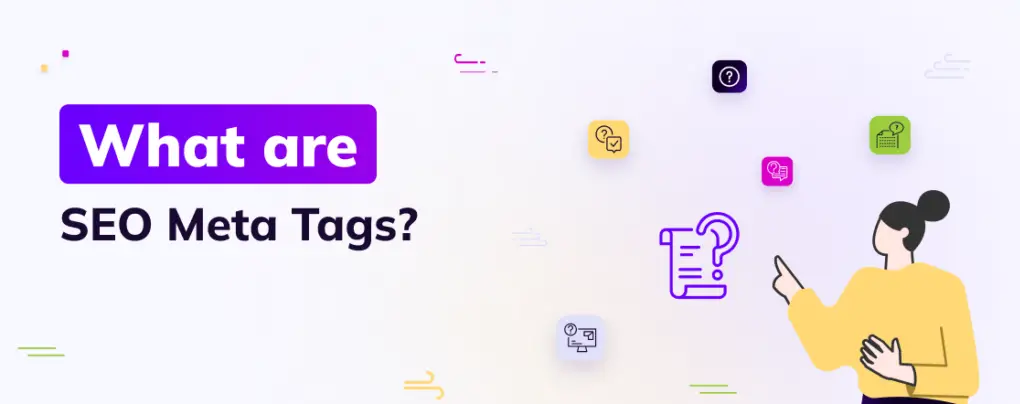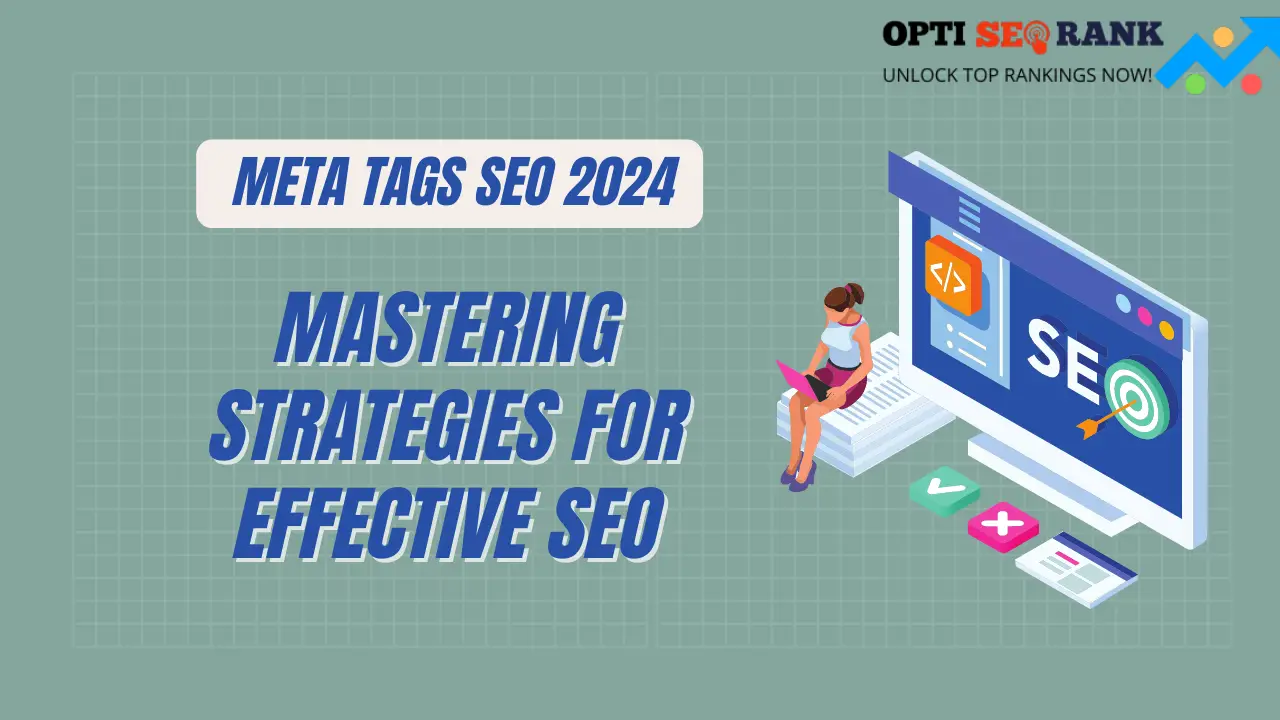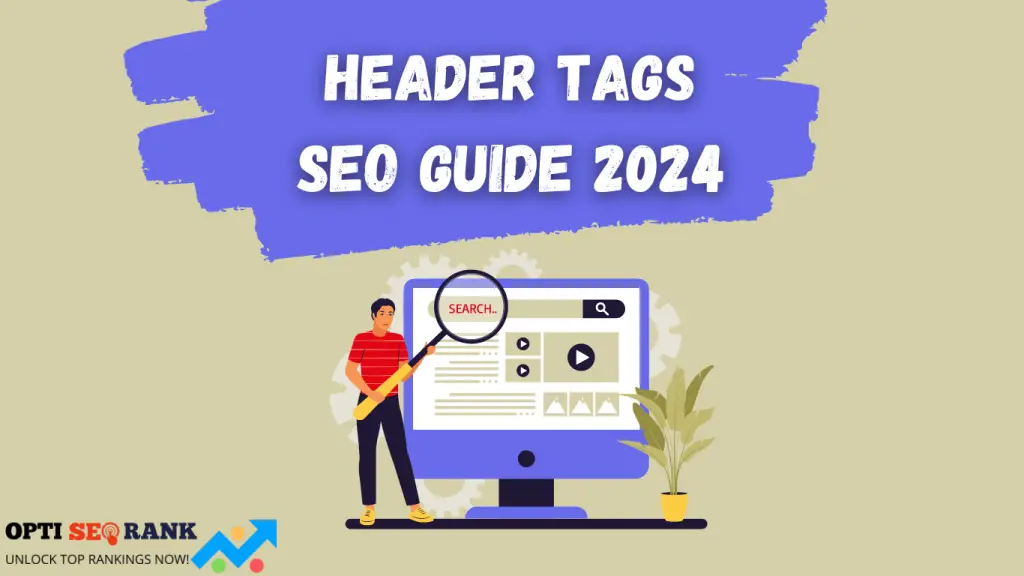Meta tags are crucial for effective SEO in 2024. Mastering them can significantly improve search engine rankings.
Meta tags provide search engines with vital information about your website’s content. They help improve visibility and attract targeted traffic. Optimizing meta tags involves using relevant keywords, crafting compelling meta descriptions, and ensuring accuracy. These tags should reflect the page’s content to enhance user experience and search engine understanding.
Keep meta titles under 60 characters and meta descriptions under 160 characters. Regularly update and audit meta tags to stay competitive. Using structured data can also boost your SEO efforts. Implementing these strategies will help you master meta tags for effective SEO in 2024.
Introduction To Meta Tags

Meta tags are vital for SEO. They offer search engines information about your web pages. This can impact your site’s ranking. Understanding meta tags can boost your site’s visibility.
Importance Of Meta Tags
Meta tags help search engines understand your content. Good meta tags can improve click-through rates. They can enhance user experience.
- Title Tag: This appears in search results. It gives a quick idea of the page content.
- Meta Description: This snippet summarizes the page content. It appears under the title tag in search results.
- Meta Keywords: These are less important now. But they were used to specify the main keywords of a page.
- Robots Meta Tag: It tells search engines what to do with the page. For example, “index” or “noindex”.
Evolution Over The Years
Meta tags have changed a lot. Initially, they were simple and few. Now, they are more complex and varied.
In the early 2000s, meta keywords were crucial. But, search engines started to ignore them. They were often misused for keyword stuffing.
Today, focus on creating quality content. Use meta tags smartly. They should reflect your content accurately. Search engines value user experience more now.
| Year | Changes in Meta Tags |
| 2000 | Meta keywords were important. |
| 2010 | Focus shifted to meta descriptions and title tags. |
| 2020 | User experience became a priority. |
Essential Meta Tags For 2024
In the ever-evolving world of SEO, mastering meta tags is crucial. Meta tags play a significant role in helping search engines understand your content. For 2024, some essential meta tags can make or break your SEO strategy. Let’s dive into the critical meta tags you need to optimize for a successful year ahead.
Title Tags
Title tags are vital for SEO. They are the first thing users see in search results. Make sure your title tags are clear and relevant. Use keywords that accurately reflect your content. Keep the title under 60 characters to ensure it displays well on all devices.
Example of a title tag:
Meta Descriptions
Meta descriptions provide a brief summary of your page. They appear below the title in search results. Write compelling and concise descriptions to attract clicks. Include your primary keywords naturally.
Example of a meta description:
A good meta description should be around 150-160 characters.
Viewport Tags
Viewport tags ensure your site is mobile-friendly. They control how your page scales on different devices. Include a viewport tag to enhance user experience on mobile devices.
Example of a viewport tag:
Using viewport tags helps your site look great on any screen size.
Here is a table summarizing the essential meta tags:
| Meta Tag | Purpose | Example |
| Title Tag | Displays the title of your page in search results | |
| Meta Description | Provides a summary of your page content | |
| Viewport Tag | Ensures your site is mobile-friendly |
By optimizing these essential meta tags, you can significantly improve your website’s SEO. Focus on creating relevant, compelling, and user-friendly meta tags to stay ahead in 2024.
Advanced Meta Tag Strategies
Meta tags play a crucial role in effective SEO strategies. In 2024, mastering advanced meta tag strategies can significantly enhance your website’s visibility. Let’s dive into the key advanced meta tag strategies you need to know.
Schema Markup
Schema markup helps search engines understand your content better. It provides additional context to your web pages. This can improve your search engine rankings.
Schema markup uses a specific vocabulary of tags (or microdata). These tags are added to your HTML to help search engines return more informative results.
| Type | Description |
| Article | Defines blog posts and news articles. |
| Product | Displays product information. |
| Recipe | Displays recipe details. |
Open Graph Tags
Open Graph tags enhance the way your content is shared on social media. They control how your web pages are displayed on social networks like Facebook.
- og:title: The title of your content.
- og:description: A brief description of your content.
- og:image: The URL of an image that represents your content.
- og:url: The URL of your web page.
Twitter Cards
Twitter Cards make your tweets more engaging. They allow you to attach rich photos, videos, and media experiences to Tweets.
- Summary Card: Includes a title, description, and thumbnail image.
- Summary Card with Large Image: Similar to the Summary Card but with a large image.
- App Card: Used to represent mobile applications.
- Player Card: Used for video and audio content.
Implementing Twitter Cards can increase your content’s visibility and engagement on Twitter.
Meta Tags For Mobile Seo
Mobile SEO is crucial in 2024. Your website must be optimized for mobile users. Meta tags play a big role in mobile SEO. They help search engines understand your content. They also improve user experience on mobile devices.
Mobile-friendly Tags
Mobile-friendly tags ensure your site looks good on all devices. They help search engines crawl your site better. Here are some important mobile-friendly tags:
- – This tag ensures your site scales correctly on all devices.
- – This tag tells browsers your site is mobile-friendly.
- – This tag sets the mobile view to 320 pixels wide.
| Tag | Function |
| Ensures site scales correctly on all devices | |
| Indicates site is mobile-friendly | |
| Sets mobile view to 320 pixels wide |
Amp Implementation
AMP stands for Accelerated Mobile Pages. AMP makes web pages load faster on mobile devices. Faster pages improve user experience and SEO. To implement AMP, you need specific tags:
- – This tag tells browsers the page is AMP.
- – This tag links to the AMP version of your page.
- – This script loads the AMP library.
Using AMP can boost your mobile SEO. It reduces page load time. It also improves user engagement. These benefits lead to higher search rankings.
Optimizing Meta Tags For Voice Search
Voice search is transforming SEO strategies. With devices like Alexa, Google Home, and Siri, people now search using natural language. Optimizing meta tags for voice search can help your content rank higher.
Natural Language Processing
Natural language processing (NLP) is crucial for voice search. Search engines use NLP to understand spoken queries. Meta tags should reflect this natural language. Use conversational phrases in your meta descriptions. For example, instead of “best SEO tips,” use “What are the best SEO tips?”
Table of NLP phrases to use in meta tags:
| Standard Keyword | Natural Language Phrase |
| SEO tips | What are the best SEO tips? |
| best restaurants | What are the best restaurants nearby? |
| weather today | What’s the weather like today? |
Long-tail Keywords
Long-tail keywords are essential for voice search. These are longer, more specific phrases. They often match how people speak. For instance, instead of “buy shoes,” use “Where can I buy running shoes?”
Benefits of long-tail keywords:
- Less competition
- Higher conversion rates
- More specific audience targeting
Examples of long-tail keywords:
- “How to optimize meta tags for SEO”
- “Best techniques for voice search SEO”
- “Top tips for natural language SEO”
Common Meta Tag Mistakes
Meta tags play a crucial role in SEO. They help search engines understand the content of your web pages. But many people make mistakes with meta tags. These errors can hurt your search engine rankings. Let’s look at some common meta tag mistakes.
Overstuffing Keywords
Keyword stuffing is a big mistake in SEO. It means putting too many keywords in your meta tags. Search engines do not like this. They may think your content is spam. This can lead to a lower ranking.
Here is an example of keyword stuffing:
Instead, use a few relevant keywords. Make sure they fit naturally. Here is a better example:
Duplicate Tags
Duplicate meta tags are another common mistake. This happens when multiple pages have the same meta tags. Search engines get confused. They do not know which page is more important. This can lower the ranking of all similar pages.
To avoid this, make sure each page has unique meta tags. Here is an example of duplicate meta tags:
| Page | Meta Description |
| Page 1 | |
| Page 2 |
Here is how it should look:
| Page | Meta Description |
| Page 1 | |
| Page 2 |
By avoiding these common mistakes, your SEO efforts will be more effective.
Tools For Meta Tag Analysis
Meta tags play a crucial role in SEO. They help search engines understand your content. To optimize these tags, use tools for meta tag analysis. This ensures your website ranks higher in search results.
Seo Audit Tools
SEO audit tools are essential for analyzing meta tags. They help identify issues and provide recommendations. Here are some popular SEO audit tools:
- SEMrush: Offers in-depth meta tag analysis. It helps in identifying missing or duplicate tags.
- Ahrefs: Provides a comprehensive site audit. It checks for meta tag issues and suggests improvements.
- Google Search Console: A free tool from Google. It helps monitor and maintain your site’s presence in search results.
- Screaming Frog: A powerful SEO spider. It crawls your website and highlights meta tag errors.
Browser Extensions
Browser extensions make meta tag analysis quick and easy. They allow you to inspect meta tags directly from your browser. Here are some useful browser extensions:
- SEOquake: Provides SEO insights for any webpage. It displays meta tags, keywords, and other essential data.
- MozBar: A popular SEO toolbar. It shows meta tag information and other SEO metrics.
- Meta SEO Inspector: Helps identify issues with meta tags. It highlights errors and suggests fixes.
- Web Developer: A comprehensive tool for web developers. It includes features for inspecting meta tags.
Utilizing these tools can greatly enhance your meta tag strategy. Ensure your meta tags are optimized for better search engine performance.
Future Trends In Meta Tags
Meta tags are evolving rapidly. In 2024, new trends are shaping SEO strategies. These trends help websites rank higher and attract more traffic. Future trends in meta tags are crucial for digital success.
Ai And Machine Learning
AI and machine learning are transforming meta tags. They analyze vast amounts of data quickly. This helps in creating more effective meta tags.
AI-powered tools suggest keywords. These keywords have high search volumes. They also help in understanding user intent better. Using AI, you can generate dynamic meta tags. These tags adapt to user behavior.
Machine learning improves over time. It learns from user interactions. This ensures the meta tags stay relevant. AI can also automate the process. This saves time and reduces errors.
Personalized Metadata
Personalized metadata is a game-changer. It tailors the content to individual users. This leads to higher engagement.
Personalization uses user data like location, search history, and preferences. This data helps in creating custom meta tags. Personalized meta tags make the content more appealing.
Here is a simple comparison table for better understanding:
| Standard Meta Tags | Personalized Meta Tags |
| Same for all users | Custom for each user |
| General keywords | Specific keywords |
| Static | Dynamic |
Personalized metadata enhances user experience. It increases the chances of conversion. This makes it a powerful tool in SEO strategies for 2024.
Frequently Asked Questions
What Meta Tags Should I Use In 2024?
Use title, description, and keyword meta tags. Implement Open Graph and Twitter Card tags. Prioritize schema markup for better SEO.
What Meta Tags Should I Use For Seo?
Use title, meta description, and keyword tags. Include alt text for images. Use canonical tags to prevent duplicate content.
How To Write A Good Meta Description In 2024?
Write a clear and concise meta description. Include target keywords naturally. Keep it under 160 characters. Use a call-to-action. Make it engaging and relevant to the content.
What Are The Top 5 Seo Strategies?
The top 5 SEO strategies are: 1. Optimize website content with relevant keywords. 2. Improve site speed and mobile responsiveness. 3. Create high-quality, engaging content regularly. 4. Build authoritative backlinks. 5. Use proper meta tags and descriptions.
Conclusion
Mastering meta tags in 2024 is crucial for effective SEO. Stay updated with trends and best practices. Implementing these strategies will boost your site’s visibility. Proper meta tags enhance search engine rankings and user experience. Start optimizing your meta tags today for better SEO performance.
Your website’s success depends on it.



